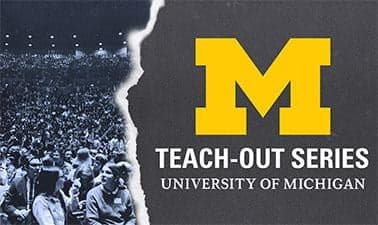MichiganX: Fake News, Facts, and Alternative Facts

- Duration
- 1 weeks
- Price Value
- $ 25
- Difficulty Level
- Introductory


"Navigating the Information Landscape: Distinguishing Fact from Fiction" is an introductory-level course offered by MichiganX that addresses one of the most pressing issues in our modern, digital age: the ability to differentiate between credible information and "fake news." In an era where information flows freely and rapidly through various channels, this course equips learners with the critical skills needed to evaluate the trustworthiness of news stories and other forms of information.
There are no specific prerequisites for this course. It is designed to be accessible to anyone interested in improving their media literacy and critical thinking skills.
This course is ideal for:
The skills acquired in this course have numerous real-world applications:
Explore more courses to enhance your cloud computing and Kubernetes skills.

This Massive Open Online Course (MOOC) is co-organised by the Bonavero Institute of Human Rights (Faculty of Law, University of Oxford) and the United Nations Educational, Scientific, and Cultural Organisation (UNESCO). It explores the regional and international standards relating to freedom of expression, including press freedom, access to public information, safety of journalists and challenges created by the digital world.

This course examines the lasting impact of colonial and neo-colonial communication control for political repression, with a focus on civil society's role in effecting change via national and international policy and law mechanisms. We delve into policy issues of Access to Information (and data) in Africa, the economic viability of the news media and the strategic aspects of organising campaigns.

Learn how to read and write in English in the context of lectures and academic texts. Reading promotes writing, and writing assists reading! Master the correct reading skills and writing skills, allowing you to achieve a leap in English reading and writing!

With rapid globalization and proliferation of social media, businesses and organizations are in face of enormous communication challenges. By seeing challenge as opportunity, this course aims to unfold communication challenges induced by the rise of social media and offer solutions to overcome these challenges.